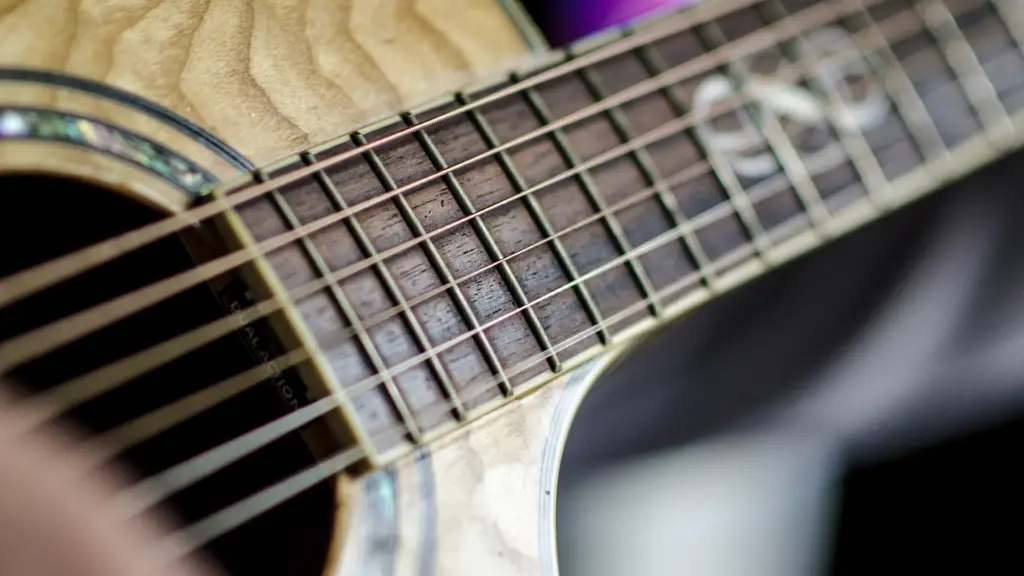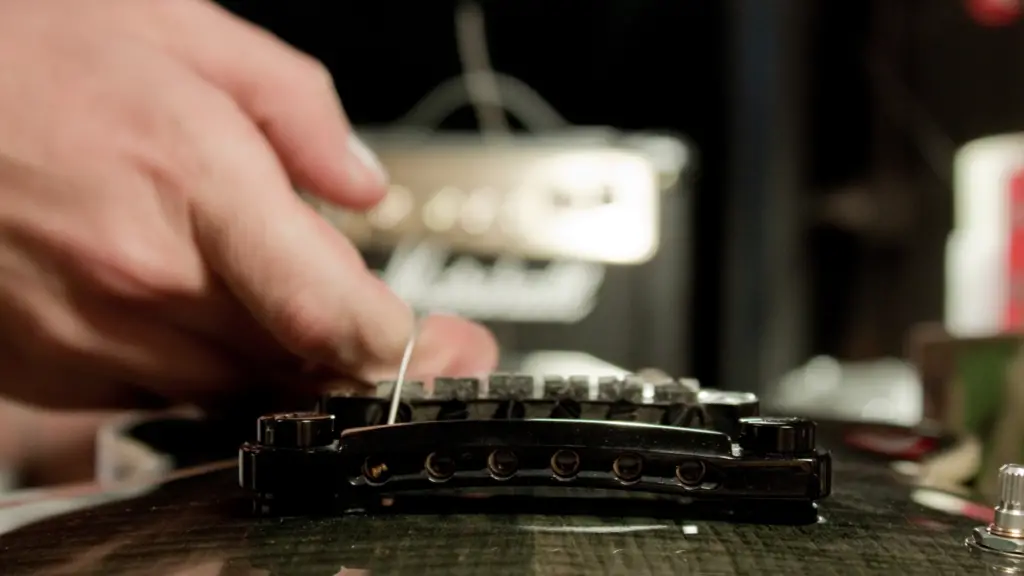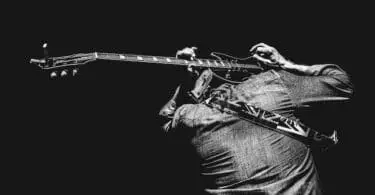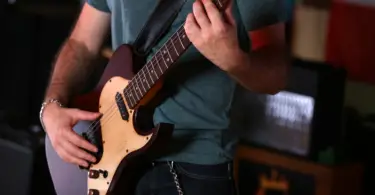Cleaning a guitar is essential to prolong its lifespan, especially with the guitar strings that give the instrument melody and play a significant role in producing sounds.
By regularly cleaning your guitar strings, you’ll preserve a more excellent and precise tone and avoid spending on new sets of guitar strings.
This post will teach you how to take good care of your guitar strings.
Quick Links
Proper Way Of Cleaning Guitar Strings
Regular cleaning of guitar strings is one way to save and protect them from rust and other dirt that sticks to it.
You can easily and quickly clean your guitar strings with your available household items, allowing you to save money along the way.
Here are some steps, standard methods, and the dos and don’ts on how to properly clean your guitar strings:

1. Use Soft And Dry Cloth
You may use a soft and cotton cloth or any cleaning rags to wipe down the dirt from the guitar strings. Make sure that the fabric is a combination of synthetic and cotton materials because cloth materials can cause dents to your guitar, especially on the fretboard.
But, if you have available microfiber cloths at home, it will be better.
We recommend microfiber cloths for cleaning your guitar strings to avoid scratches and prevent them from sticking between spaces in the fretboard.
After wiping each string, you may need to retune your guitar because the strings might be out of tune as you pull and grab each of the guitar strings.
2. Wipe and Slide the Cloth Between the Fretboard and Guitar Strings
Each string must be wrapped with the microfiber cloth and slowly wiped down and up to the entire surface.
Make sure to hold each string while wiping it down to remove any rust and dirt altogether.

3. Apply Guitar String Lubricants
Put a small amount of guitar strings lubricant in a cloth and slowly rub it around the guitar strings. After applying string lubricants, gently wipe off each string with a clean and dry cloth or microfiber cloth to remove excess oils.
Guitar strings lubricants can help minimize the squeaky sounds and noises caused by dirt or any grime in the strings. There are a lot of guitar strings lubricants available in the market.
Use oils or lubricants that are intended for guitar strings only to avoid any damages.
Some guitarists find it better when they apply string lubricants, and some do not like it because the strings become a bit sticky.
4. Don’t Use Rubbing Alcohol Or Isopropyl Alcohol When Cleaning Guitar Strings
Rubbing alcohol is known for its cleaning and disinfecting agents.
However, it’s not advisable to use it for cleaning your guitar strings. It might cause damage to your fretboard where the guitar strings are attached.
Also, it might remove the polish of your fretboard as rubbing alcohol or isopropyl alcohol has some dehydrating agents.
5. Do Not Use Soap And Other Cleaning Agents
Household cleaners like bath soap and dishwashing liquids are not advisable to use to clean your guitar strings.
These products will quickly damage and can build up rust around the guitar strings.
Cleaning agents like bleach are also not helpful in removing residue from guitar strings. Instead, it causes discoloration and drying of the wooden fretboards.
6. Put Guitar Strings Into A Boil
Other guitarists say that putting your guitar strings into a boil will make your strings look and feel like a new one. However, this method is considered time-consuming as you need to remove each guitar string from the fretboard and put them back again after a few minutes of boiling.
Also, boiling guitar strings are only recommended for bass guitar strings. You may boil the bass guitar strings for 12-15 minutes to remove some rust but don’t overdo it. This process might remove the natural oil of the guitar strings.
Why Do Strings Get Dirty?
Over time, constant guitar usage will leave guitar strings some rust, residue, or particles from hands or surroundings.
Below are among the common reasons why guitar strings quickly get dirty:
- Playing your guitar often causes dirt particles in guitar strings – Whenever your hands or fingers touch the guitar strings, it leaves or transfers oil or sweat. Guitar strings will eventually get corroded if they aren’t wiped off properly.
- Guitar strings quickly get dirty when not in use – Not using a guitar for a long time will build up rust around the guitar strings. Play, handle or use your guitar as much as your time permits you.
- There is no proper storage and maintenance of the instrument – Exposing your guitar to open surroundings will quickly get it dirty and dusty. As a result, the guitar strings lose their quality tone and original sound frequencies.

Importance Of Cleaning Your Guitar Strings
If you wish to prolong the lifespan of your stringed instruments and keep your guitar strings looking new, you need to clean them regularly. By simply wiping off the dust, you are letting your guitar string look better and last longer.
As a guitarist or simply as someone who plays any stringed instruments, it is advisable to wash your hands before you start playing guitars. This habit will save your guitar strings from oil and other debris from your hands and fingers.
Regular cleaning of your guitar strings will also refrain you from changing guitar strings and installing new ones, allowing you to save a lot of money.
It will also prevent your guitar strings from moisture, which is why strings quickly build up corrosion.
Final Words
Overall, it’s easy to overlook the importance of cleaning the guitar strings or any stringed instruments. However, simply wiping off with a dry cloth can easily clean your guitar strings and prevent them from having a dull tone and sound.
You can play your instruments more comfortably, hear a more precise tone, and produce quality sounds with clean guitar strings.
Knowing how to clean your guitar strings properly is as easy as changing or restringing your guitar to make it look new and keep it sounding good but in a more cost-effective way.






